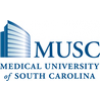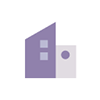Job Description
Background : Although there is an explosion of the brain stimulation methods in psychiatry, many of which are clinically approved and being used by psychiatrists, there are few formal training positions for psychiatrists.
MUSC has been a leader in brain stimulation, and in 2011 we created and began a one-year fellowship’ in this area. In the early days of interventional cardiology or interventional neuroradiology, there were no formal fellowships or pathways to training and credentialing.
A few leading universities created positions to fill that void until national accrediting pathways were created. MUSC is filling that void now in the new area of interventional psychiatry’, or formal in-depth training in the brain stimulation methods.
Although this is a clinical fellowship, it is integrated with translational research studies involving brain stimulation methods.
The fellow will graduate with good working knowledge of all of the FDA approved brain stimulation methods, and also with experience in doing clinical research trials of the next generation of tools.
Requirements : The ideal candidate is a psychiatrist who has recently graduated (or will graduate in June) from a training program and wants to sub-specialize before beginning their clinical or academic career.
Candidates must be an MD (or DO) and be board eligible or board certified in psychiatry and be able to obtain a clinical license in South Carolina.
Faculty position / tenure status : This is an instructor position, tenure track-eligible, with a nonrenewable 12-month contract, beginning July 1st 2023 and ending on June 30th 2024.
In the spring of 2024, if additional clinical or research opportunities are available for a subsequent academic year, then the fellow could pursue a contract for assistant professor / tenure track at MUSC with appropriate salary.
Salary : $100,000 base for core responsibilities in brain stimulation clinical service and research. The position is listed primarily clinical with a minority amount of time with research.
The fellow may choose to earn additional income from clinical coverage on nights and weekends at MUSC and MUSC affiliated psychiatric care, once they are credentialed at MUSC.
Goals : To become knowledgeable and skilled in all of the current clinical and research brain stimulation modalities, including ECT, TMS, VNS, DBS, tDCS and EpCS.
The fellow will receive documentation certifying their training and MUSC credentialed status in multiple brain stimulation technologies.
Responsibilities : Clinical responsibilities will include but are not limited to providing brain stimulation consultations and providing a mix of ECT, TMS, and VNS and DBS programming.
Research responsibilities will include participation in clinical research protocols within the Brain Stimulation Division.
The fellow will attend investigator meetings, conferences, and may participate in research publications if they are interested.
There is also the possibility for individual investigator-initiated research.
Location : The bulk of the ECT brain stimulation work will be done on the 5th floor of the MUSC Institute of Psychiatry, which is an entire floor devoted to brain stimulation.
MUSC Brain Stimulation Services provides TMS at an outpatient clinic East Cooper and may be expanding elsewhere soon. The fellow will have access to faculty parking.
Additional Job Description
Physical Requirements : (Note : The following descriptions are applicable to this section : Continuous - 6-8 hours per shift;
Frequent - 2-6 hours per shift; Infrequent - 0-2 hours per shift) Ability to perform job functions in an upright position.
Frequent) Ability to perform job functions in a seated position. (Frequent) Ability to perform job functions while walking / mobile.
Frequent) Ability to work indoors. (Continuous) Ability to work outdoors in all weather and temperature extremes. (Infrequent) Ability to work in confined / cramped spaces.
Infrequent) Ability to perform job functions from kneeling positions. (Infrequent) Ability to squat and perform job functions.
Infrequent) Ability to perform 'pinching' operations. (Infrequent) Ability to fully use both hands / arms. (Frequent) Ability to perform repetitive motions with hands / wrists / elbows and shoulders.
Frequent) Ability to reach in all directions. (Frequent) Possess good finger dexterity. (Continuous) Ability to maintain tactile sensory functions.
Continuous) Ability to lift and carry 15 lbs., unassisted. (Infrequent) Ability to lift objects, up to 15 lbs., from floor level to height of 36 inches, unassisted.
Infrequent) Ability to lower objects, up to 15 lbs., from height of 36 inches to floor level, unassisted. (Infrequent) Ability to push / pull objects, up to 15 lbs.
unassisted. (Infrequent) Ability to maintain 20 / 40 vision, corrected, in one eye or with both eyes. (Continuous) Ability to see and recognize objects close at hand.
Frequent) Ability to see and recognize objects at a distance. (Frequent) Ability to determine distance / relationship between objects;
depth perception. (Continuous) Good peripheral vision capabilities. (Continuous) Ability to maintain hearing acuity, with correction.
Continuous) Ability to perform gross motor functions with frequent fine motor movements. (Frequent)
If you like working with energetic enthusiastic individuals, you will enjoy your career with us!
The Medical University of South Carolina is an Equal Opportunity Employer. MUSC does not discriminate on the basis of race, color, religion or belief, age, sex, national origin, gender identity, sexual orientation, disability, protected veteran status, family or parental status, or any other status protected by state laws and / or federal regulations.
All qualified applicants are encouraged to apply and will receive consideration for employment based upon applicable qualifications, merit and business need.
Medical University of South Carolina participates in the federal E-Verify program to confirm the identity and employment authorization of all newly hired employees.
For further information about the E-Verify program

